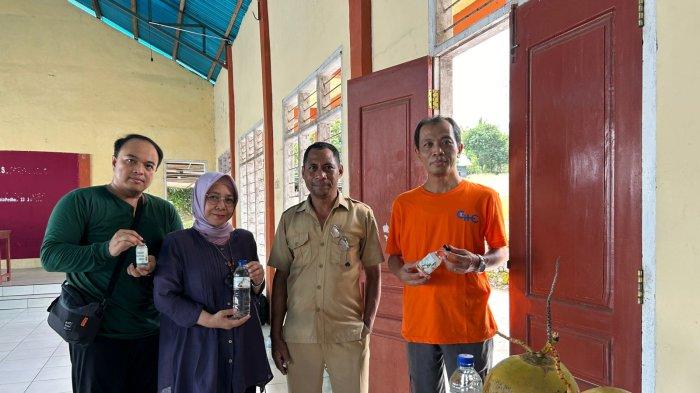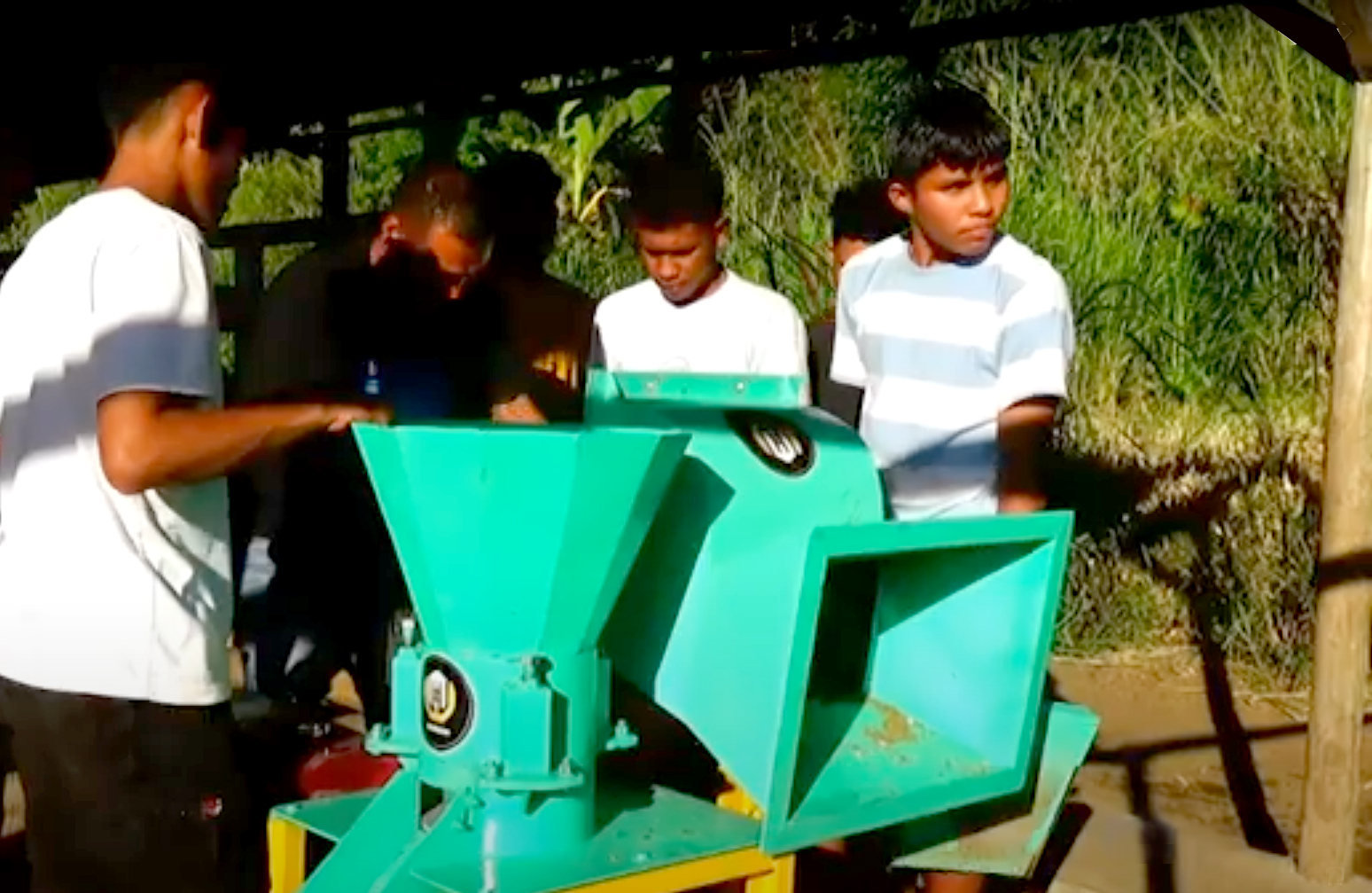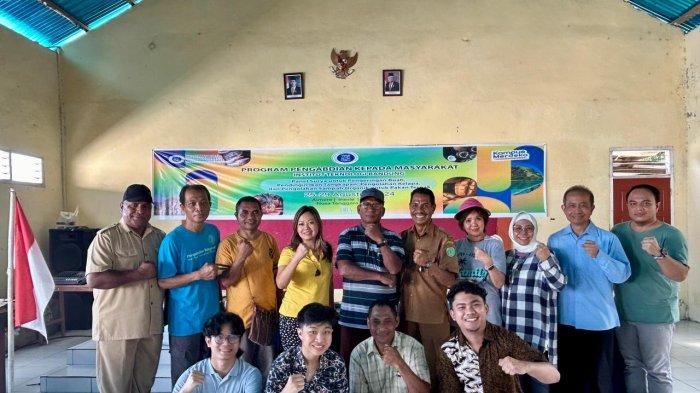

From August 25-29, 2024, the Directorate of Research and Community Service (DRPM) team from ITB revisited Inerie Village, Ngada Regency, East Nusa Tenggara. The team, led by Prof. Dr. Ir. Lienda A. Handojo, M.Eng from the Food Engineering program, and Ir. Sanggono Adisasmito, M.Sc., Ph.D. from the Chemical Engineering program, continued their ongoing assistance to help the local community optimize their abundant yet underutilized natural resources.
Inerie Village is located at the foot of Mount Inerie and along the coastline, offering significant potential in agriculture, livestock, and fisheries. To harness these potentials, ITB’s DRPM team focused on four key areas: solar-powered fruit drying technology, fish refrigeration systems, coconut processing to produce Virgin Coconut Oil (VCO), and organic waste processing for livestock feed.
The fruit drying program, initiated in 2022, has assisted farmers in preserving their produce to prevent spoilage and maintain market value throughout the year. The solar-powered drying technology was applied using a drying machine, with dried fruit expected to be marketed in Labuan Bajo through the business partner, New Eden Moringa.
Imelda Nginu, a member of the Inerie Village Farmers Group, expressed her gratitude for ITB’s support. “This fruit drying equipment has greatly helped our village economy,” she said.
Besides drying technology, the ITB team also introduced a cooling system designed for local fishermen. This equipment can extend the shelf life of the fish, allowing the fishermen to sell their catch fresh, even when immediate sales are not possible.
In the coconut sector, the team educated locals on improving the quality of VCO and the potential to process coconuts into cooking oil. Additionally, the cooling equipment is expected to help fishermen preserve their catch longer.
In the livestock sector, ITB collaborated with the Flores Bajawa College of Agricultural Sciences (STIPER) to develop livestock feed formulations using agricultural waste. Using a chopper and pellet machine provided by ITB, farmers can now produce high-quality feed from local materials. This initiative aims to reduce the cost of importing feed, which previously reached IDR 12,000 per kilogram. If produced locally, the cost can be reduced by half.
Dr. Nicolaus Noywuli, S.Pt., M.Si, Rector of STIPER Flores Bajawa, also expressed his hopes for continued collaboration. "We hope this partnership will continue so that we can learn more from ITB in these community empowerment efforts," he said.
Prof. Lienda A. Handojo added that the innovations and technologies introduced by ITB are expected to evolve and be adopted by the community sustainably, so their impact will be increasingly felt in the future. “This program is part of ITB's commitment to contributing to community development in areas with great potential that have not yet been fully realized,” she explained.
Related News:
1. flores.tribunnews.com: ITB Bantu Maksimalkan Pemanfaatan SDA untuk Tingkatkan Kesejahteraan Masyarakat Inerie Ngada, NTT
2. flores.tribunnews.com: Inovasi dan Pemberdayaan: ITB Bantu Masyarakat Flores Maksimalkan Potensi Alam
3. Youtube - @INDOSIARKUPANG: STIPAR BAJAWA KEMBANGAN PAKAN TERNAK DARI LIMBAH HASIL PERTANIAN


